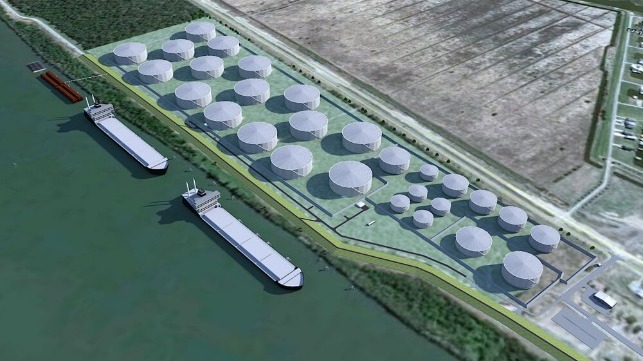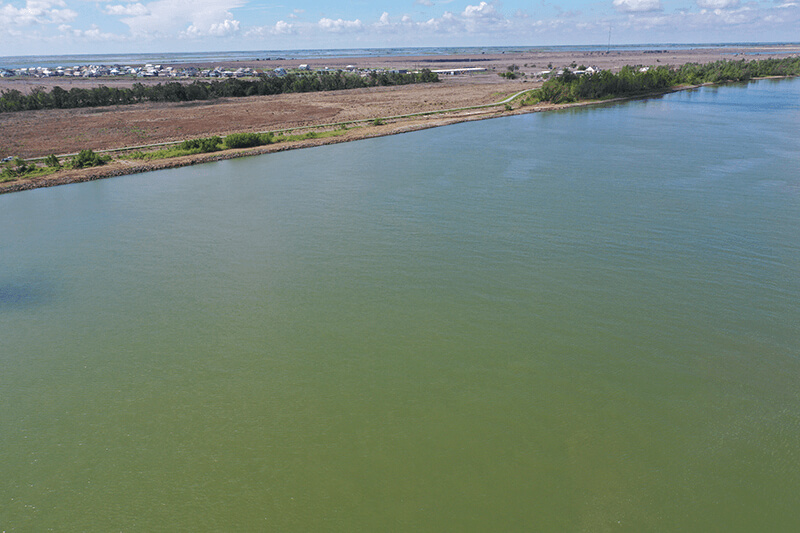Construction Begins on Mississippi River’s Largest Oil Terminal

Construction work began this week on the new oil and refined products terminal project in Plaquemines Parish, Louisiana. Occupying 158 acres located on the lower Mississippi River, NOLA Oil Terminal will be the first of its kind in the region, allowing Mississippi River access for much larger vessels, including Panamax and Suezmax tankers.
“Crude oil and clean petroleum products such as gasoline, diesel, and jet fuel are significant trade products for Louisiana, but we aren’t able to take advantage of the larger vessels,” says Christian Amedee, COO of NOLA Oil Terminal. “That changes today. This terminal will be the first in the area to be able to accommodate vessels that currently are too large and deep to dock in the Mississippi River or in most Gulf of Mexico and Eastern Seaboard ports.
Amedee explains that this project, when completed, will be the newest state-of-the-art facility along the lower Mississippi River and is poised to add further value by offering blending, storing, and transferring needs with a superior geographical location.
NOLA Oil Terminal to be only Mississippi River wharf to handle 1,200-foot vessels. The initial water-side phase of the project includes two deepwater berths able to accommodate large tankers and one barge dock. These two berths will be capable of mooring 170,000-ton vessels. The barge dock will serve both inland and oceangoing tank barges. Land-side construction constitutes the second phase of the project.
In addition to opening new channels to import and export crude oil and other clean petroleum products, NOLA Oil Terminal expects to create over 1,000 construction jobs through completion of phases one and two. The completed terminal is expected to sustain from 30 to 40 permanent jobs in Plaquemines Parish.
Phase one, the wharves and docks, is projected to be completed in mid-2022. All required permits are in place, and site preparation including site clearing, open channel drainage, construction access roadways, geotechnical investigations and pile load tests, and environmental studies is completed. Phase two, the land-side section, is in the development phase and no timeline has yet been announced for this work.

Site with prep work underway in November 2021 (NOLA Oil Terminal)
Once completed and operational, the NOLA Oil Terminal will be able to accommodate up to six tankers each week. The completed structure, which is phase two, is expected to have a storage capacity as high as 10 million barrels and the company also has options to add refined products to the facility.

that matters most
Get the latest maritime news delivered to your inbox daily.
Financing for the first phase of the project, a $300 million wharf and dock bond funding, was the largest bond issue approved by the Port of Plaquemines in over 50 years. The total project is projected to cost $930 million
Separately, Plaquemines Port is also looking at building a large container terminal also located about 50 miles from the Gulf of Mexico. In May 2021, APM Terminals entered into an agreement to explore the development of the multi-modal facility. The proposal calls for up to 1,000 acres and 8,200 feet of Mississippi River frontage. Phase One of construction for the container terminal is expected to require two years and would provide the capability to handle 22,000-TEU class vessels with the ability to expand capacity if needed.
